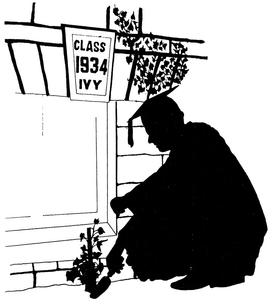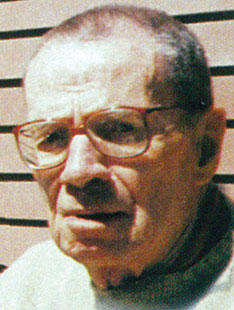From the Editor: Farewell to ’34

For more than two years, the first class to be represented in PAW’s Class Notes section has been 1934. But on Jan. 3, the last known surviving member of the class, Noel Hemmendinger, died, bringing the class’s columns to an end. As is PAW’s tradition, we mark the close of a class’s notes with a brief history:
Class historians were the first to say that outwardly, at least, the 631 freshmen of ’34 were little like Princeton undergraduates today. “In most ways we were a pretty traditional group,” the class recalled in its 50th-reunion book. “Our family politics were overwhelmingly Republican. Most of us belonged to one of only two churches, Presbyterian and Episcopal. Most of us came from private schools. An even 100 were sons of Princeton alumni. The great majority hailed from just three states — New York, New Jersey, and Pennsylvania ... . ”
Members of ’34 called themselves the Depression Class — 27 percent left before graduation, which classmates attributed partly to economic hardship. Tuition during their first year cost $450; eating at Commons cost $8.50 per week.
Still, classmates had fun — occasionally too much. In the Nassau Herald they told of black ties and dinks, football, and cane sprees. The Herald recalled a football rally that turned “into a riot, and a large part of the student body surged aimlessly up and down Nassau Street, blocking traffic, while a smaller and more energetic number worked behind the library and pulled the Christian Student from his pedestal.” Class members experienced tragedy when three students were killed and four injured in two separate auto accidents; got caught up in presidential politics when the campus was “deluged by Republican campaigns, Democratic speeches, parades by both parties, exhortations from young Socialists ...”; muddled through a bank holiday (see page 64); and celebrated the end of Prohibition in their senior year: “’34 donned its beer suits, proud to be the first class in years to baptize the traditional white wing outfit with real, legal beer — vastly superior to ’33’s 3.2. Our last stand at Princeton was begun.”

It’s impossible to tell the story of ’34 without recalling its faithful chronicler, Ralph Ritchie. Ritchie became class secretary at his fifth reunion and served until June 2009, when he stepped down at age 97 because his eyesight was failing. Over seven decades, Ritchie took only five years off — in the 1940s, when he was in the Army. When he was discharged from the military in 1946, he assumed his class responsibilities with fervor, vowing “immediately to re-establish our 1939–40 network of special news correspondents in key cities, for the intention of collecting all the news for all the class.” He succeeded.
When he resigned as secretary, Ritchie found the perfect successor: his daughter, Lisby, as diligent as her dad in reporting class news even as the number of classmates reading her notes dwindled. To her, PAW sends a special thank you.











1 Response
Peter D. Kinder ’70
8 Years AgoRecalling Past Classes
In her column, “Farewell to ’34” (From the Editor, March 1), PAW editor Marilyn Marks *86 honors a class whose passing deserved her personal notice. Then, in ’39’s Class Notes, Leslie W. Fitzgerald h’39 pays tribute to Hannah and Fred Fox ’39, two people whose presence during my years at the University made it a more pleasant, welcoming place. And, in ’40’s notes, H. Clay McEldowney ’69 h’40 recalls a life spent with members of his father’s remarkable class.
My thanks to the graceful writers — and to the men and women they recalled and honored.